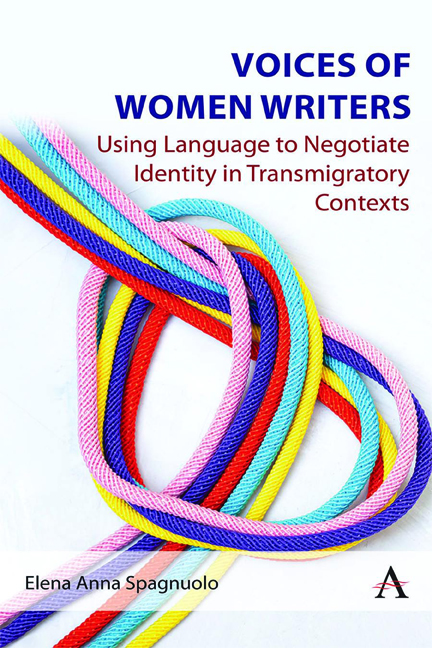Book contents
- Frontmatter
- Contents
- Introduction
- 1 Revoicing Female Migrant Identities through Creative Multilingualism
- 2 Gianna Patriarca: Self-Translating as a Strategy of Re-grounding
- 3 Dôre Michelut: Coming to Terms with the Mother Tongue
- 4 Licia Canton: Rewriting the Italian Mother (Tongue, Land)’s Legacy in Self-Translation
- 5 Francesca Duranti: ‘Trans-Writing’ the Self through Acts
- Conclusion
- References
4 - Licia Canton: Rewriting the Italian Mother (Tongue, Land)’s Legacy in Self-Translation
Published online by Cambridge University Press: 01 March 2024
- Frontmatter
- Contents
- Introduction
- 1 Revoicing Female Migrant Identities through Creative Multilingualism
- 2 Gianna Patriarca: Self-Translating as a Strategy of Re-grounding
- 3 Dôre Michelut: Coming to Terms with the Mother Tongue
- 4 Licia Canton: Rewriting the Italian Mother (Tongue, Land)’s Legacy in Self-Translation
- 5 Francesca Duranti: ‘Trans-Writing’ the Self through Acts
- Conclusion
- References
Summary
Growing Up in a Cavarzeran Community in Montréal
Licia Canton is another representative of the Italian-Canadian literary movement. Her story retraces the steps followed by Gianna Patriarca and Dôre Michelut, and it echoes the stories of many other Italian-Canadian migrants. She was born in Cavarzere, a small town in the province of Venice. In 1967, when she was four years old, she moved to Montréal with her family. Being forced to leave her native land and start a new life in a new territory was a painful and distressing experience, which has thenceforth marked her personal and professional lives. In the essay ‘Writing Canadian Narratives with Italian Accents: The Pink House and Other Stories’, she writes that, while she used to be a talkative child in Italy, in Canada she became shy and did not speak much (2019, 60). The experience of being voiceless, which is common among Italian-Canadian authors, especially female ones, triggered her need and desire to retrieve her voice, which subsequently inclined her to write. Indeed, in the same essay, she declares that she was able to find her voice only when she began writing (2019, 60).
Canton shows a great interest in migration and minority literature, with a sharp focus on Italian-Canadian literature. She has explored this theme in both critical and creative writing. Among the critical texts are Writing Our Way Home (2013), Conspicuous Accents (2014), Writing Cultural Difference (2015), and Writing Beyond History: an Antholog y of Prose and Poetry (2006). These anthologies collect the literary creations (both prose and poetry) of several Italian- Canadian authors. Among the literary texts that investigate migration from a less academic perspective is Almond Wine and Fertility (2008), where the author portrays the encounter between Italian and Canadian culture, and The Pink House and Other Stories, a collection of 15 short stories.
Among her many achievements, Canton was the recipient of the Premio Italia nel Mondo, that celebrates Italian excellence in the world. This award started in New York in 1994, when the famous Italian tenor Luciano Pavarotti was awarded.
- Type
- Chapter
- Information
- Voices of Women WritersUsing Language to Negotiate Identity in (Trans)migratory Contexts, pp. 85 - 110Publisher: Anthem PressPrint publication year: 2023

